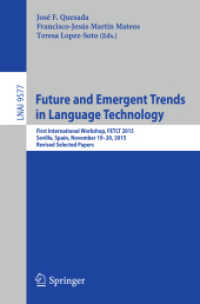Full Description
Fuzzy modeling has become one of the most productive and successful results of fuzzy logic. The research developed in the topic during the last two decades has been mainly focused on exploiting the fuzzy model flexibility to obtain the highest accuracy.








